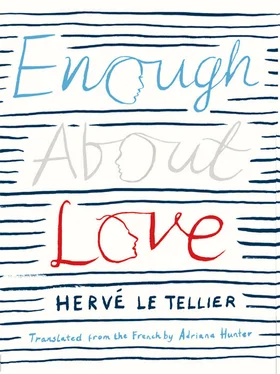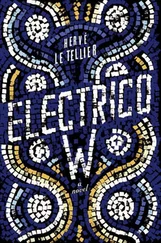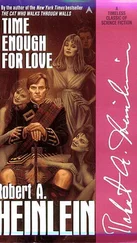Hervé Le Tellier
Enough About Love
For me, love has always been the most important of matters, or rather the only one.
STENDHAL, The Life of Henry Brulard
• •
THAT YEAR THE PLANET EXPERIENCED its hottest autumn for five centuries. But the climate’s providential clemency, which may have played its part, will not be mentioned again.
This tale covers a period of three months, and perhaps a little more. Any man — or woman — who wants to hear nothing — or no more — about love should put this book down.
• •
T OWNS SHOULD BE GIVEN LARGE PARKS. Parks are a condition necessary for young people’s lives to change course, to set off on a different tack, down an unforeseen fork. For them to realize part of their potential. It is into just such a park, the Jardin du Luxembourg in Paris, that a young man walks one February morning in 1974. He has long hair and is wearing a woolen scarf, his name is Thomas, Thomas Le Gall.
Thomas is a good student. He is just sixteen and is already in his first year of an advanced math class: he has to satisfy his mother’s ambitions for him, and get into one of the elite universities, ideally the highly competitive Polytechnique. But on this February morning, Thomas left home — he lives in Barbès in the Eighteenth Arrondissement — and took the Métro, and did not get off at the station where his school is. He stayed on Line 4 all the way to Saint-Michel, then walked up the boulevard to the park. He walks toward the large pond, passes statues of the queens of France, and sits on a metal chair. He has prepared for this getaway: he has several books in his bag. It is not all that cold.
In the evening he goes home to his parents. He is hungry: he had a baguette sandwich and a piece of fruit for lunch.
The next day, the day after that, and every other day, Thomas goes back to the Jardin du Luxembourg. The park becomes his headquarters. He sometimes meets up with bohemian companions: a girl his age, Manon, blond, ski-jump nose and freckles, even more adrift than he is (the smell of patchouli will remind him of her forever); and Kader, a tall black man, maybe thirty, a guitarist who plays in the Métro. When it rains, Thomas takes shelter by one of the kiosks or warms up at the Malebranche, a smoky café where he quickly falls into a routine with some art students from Louis-le-Grand. They discuss politics and literature, row about Proust, Althusser, Trotsky, and Barthes, his vehemence in proportion to his ignorance of the texts. When he comes to read them properly, later, he will blush as he remembers the idiocies he uttered, and marvel at the impunity of his imposture.
March comes, then April. Thomas has informed the teachers that he has abandoned his studies. To his parents, of course, he lies. He discovers how easy that is, exciting even, how gifted he is at lying. He reeks of tobacco? He rants about how stressed smokers get before their practice exams. He is short of money at lunchtime? From now on the cafeteria likes you to pay with cash, he says he suspects the bursar of corruption. He comes home too early by mistake? An oxidation-reduction experiment went wrong and the chemistry teacher—“You’re not going to believe this”—burned himself. He never talked about his studies so much until the day he quit them.
One May evening, almost before he has set foot in the house, Thomas starts elaborating that day’s fiction. His father watches him, in silence. All at once his mother explodes. They know. The school called: he failed to return a book to the library, even though he defected three months ago. Angry words, flaring tempers, big arguments. Thomas will never be admitted to one of the elite universities. He leaves his family home and finds refuge at a friend’s house. He lives off small jobs — still possible in those days of a healthy economy — and vaguely takes up studying psychology and sociology, prolonging his adolescence by ten years. One May morning, a telephone call from a police station ejects him brutally from this cocoon. The woman he loves, Piette, who had been hospitalized for depression, has only just been released. She has thrown herself under a train. In three days Thomas completes all the paperwork, organizes the ceremony and buries his friend. With the grave filled, he goes home. He does not emerge until a week later, clean-shaven and with his curly black hair as good as shaved off. He goes back to his studies.
At the point where this story begins, a copper sign screwed to the door frame of 28 rue Monge, not that far from the Jardin du Luxembourg, summarizes his trajectory.
DR. THOMAS LE GALL
PSYCHIATRIST, PSYCHOANALYST
FORMER INTERN AT THE
PARIS PSYCHIATRIC HOSPITALS
The sign paints a professional portrait of him, but when all is said and done, Thomas Le Gall is very professional now.
On the fourth floor, through the door on the left, a one-bedroom apartment has become a psychoanalyst’s office. Thomas has kept the spacious modern kitchen. He occasionally eats there, perhaps a spring roll from the Chinese restaurant. The bedroom, to the left of the front door, is now a waiting room: waxed floorboards, two deep armchairs, and a coffee table give it an English country club feel; the window has no curtains and looks out onto the street. The thirty-minute sessions are held at hourly intervals, patients never meet. On set days Thomas sees patients in the large living room: the view of the sky and the plane trees in the courtyard would be clear, if not for exotic wood blinds filtering the light. The door is padded with black velvet. The olive-colored leather of the couch is intended to be soothing. African masks watch over the room benevolently, like the Moai statues, turning their backs to the sea and protecting Easter Island. Behind the Louis-Philippe desk hangs a blue-gray industrial landscape by Lowry. On the opposite wall there is a very small and very dark painting by Bram Van Velde, dating from his friendship with Matisse. It is the only valuable piece. Thomas acquired it at the Drouot auction house, probably paying a little too much — if it actually makes sense to talk about paying too much for art — with the precise intention of stopping himself from buying things at Drouot.
Thomas is well aware that he has made this space a caricature of a psychoanalyst’s office. At least he has spared his patients the Malian sculptures and Congolese nail fetishes. But decorum and what it represents are not without importance, and Thomas knows this.
On the extensive bookshelves against the far wall, literature rubs shoulders with psychoanalysis in peaceful conflict. Joyce mingles with Pierre Kahn, Leiris is shoehorned against Lacan, a book by Queneau which has been put back in the wrong place — a good sign for a book — leans up against a Deleuze. When Queneau died, Thomas was not yet fifteen. Si tu crois xava, xava xava xa, xava durer toujours la saison des za la saison des zamours … 1It is a long time since Thomas Le Gall has believed it will. The wrinkles are growing deeper, his curly hair, now more salt than pepper, is receding from his forehead, the face has broadened, is thickening slightly, the former forty-year-old is heading toward the sixty-year-old and is expecting worse to come.
The bow-fronted clock on the mantelpiece says nine o’clock. Thomas has deactivated its chiming mechanism to keep control of his sessions. He sits in his armchair, waiting. He reads a two-day-old copy of Le Monde , tidies a few papers. His first appointment is late. Anna Stein is always late. By two, ten, sometimes fifteen minutes, always for a good reason: the babysitter didn’t arrive, Paris traffic jams, nowhere to park. Thomas suggested a different time to her, she turned it down. Perhaps she likes playing hard to get. Thomas trusts the wisdom of popular expressions.
Читать дальше












